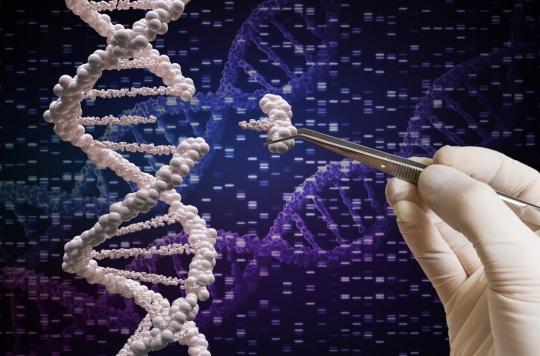The controversial researcher He Jiankui, “father” of twins genetically modified to be resistant to the HIV virus, has just been sentenced by Chinese justice to 3 years in prison and a fine of 3 million yuan.

In November 2018, Chinese doctor He Jiankui caused amazement and anger in the international scientific community after giving birth to Lulu and Nana, genetically modified twins to be resistant to HIV.
A year later, here he is caught up with by justice. This Monday, December 30, He Jiankui was found guilty by the Chinese courts of “illegal genetic manipulation of embryos for reproductive purposes”. According to new china news agency, he was sentenced to 3 years in prison and a fine of 3 million yuan (about 384,000 euros). Two other people belonging to “medical institutes in Guangdong province” were also sentenced: a certain Zhang Renli to two years in prison and a fine of one million yuan (approximately 130,000 euros) and a certain Qin Jinzhou a year and a half suspended prison sentence and a fine of 500,000 yuan (approximately 65,000 euros).
If researcher He Jiankui was sentenced, it was largely due to pressure from the international community. Indeed, until now, China had a law dating from 2003 which prohibited the genetic manipulation of embryos, but which did not provide for any legal sanction. Accused of laxity, the government ended up ordering the suspension of the search and opening a police investigation. Meanwhile, a third genetically modified baby using CRISPR-Cas9 technology has been born, the Xinhua News Agency reported.
Genetic mutations with uncertain consequences
Deemed “shocking” and “worrying” by the scientific community, the experimentation carried out by He Jiankui consisted of removing and replacing unwanted parts of the genome to make the little girls resistant to HIV, the virus of which their father is a carrier. When eggs and sperm were combined, the Chinese scientist added a CRISPR protein to modify the CCR5 gene of the embryos. This “CCR5 delta 32” mutation has made it possible to “close the door” through which HIV can enter and infect cells.
If this technique of “genetic scissors” seems to have immunized the twins against the HIV virus, scientists are worried these mutations have also affected other parts of their genome with long-term consequences still unknown.
Last June, a study published in the journal NatureMedicine showed that the delta 32 mutation of the CCR5 gene to which He Jiankui had committed on the twins would shorten the life expectancy of people who are carriers by about 2 years.
“Beyond the many ethical issues related to CRISPR babies, the fact is that now, with current knowledge, it is still very dangerous to try to introduce mutations without knowing the full effect these mutations have. ”, had then warned the main author of the study, Professor Rasmus Nielsen.
A point of view shared by Carine Giovannangeli, research director at the CNRS. Invited to the program “Santé 2030” broadcast on the YouTube channel of Pourquoi Docteur, the researcher explains that “once the DNA has been broken with the CRISPR-Cas9 system, these are the mechanisms triggered by the break that modify the cells, and we have no control over these mechanisms, sometimes it works, sometimes it works less well.”
.
















